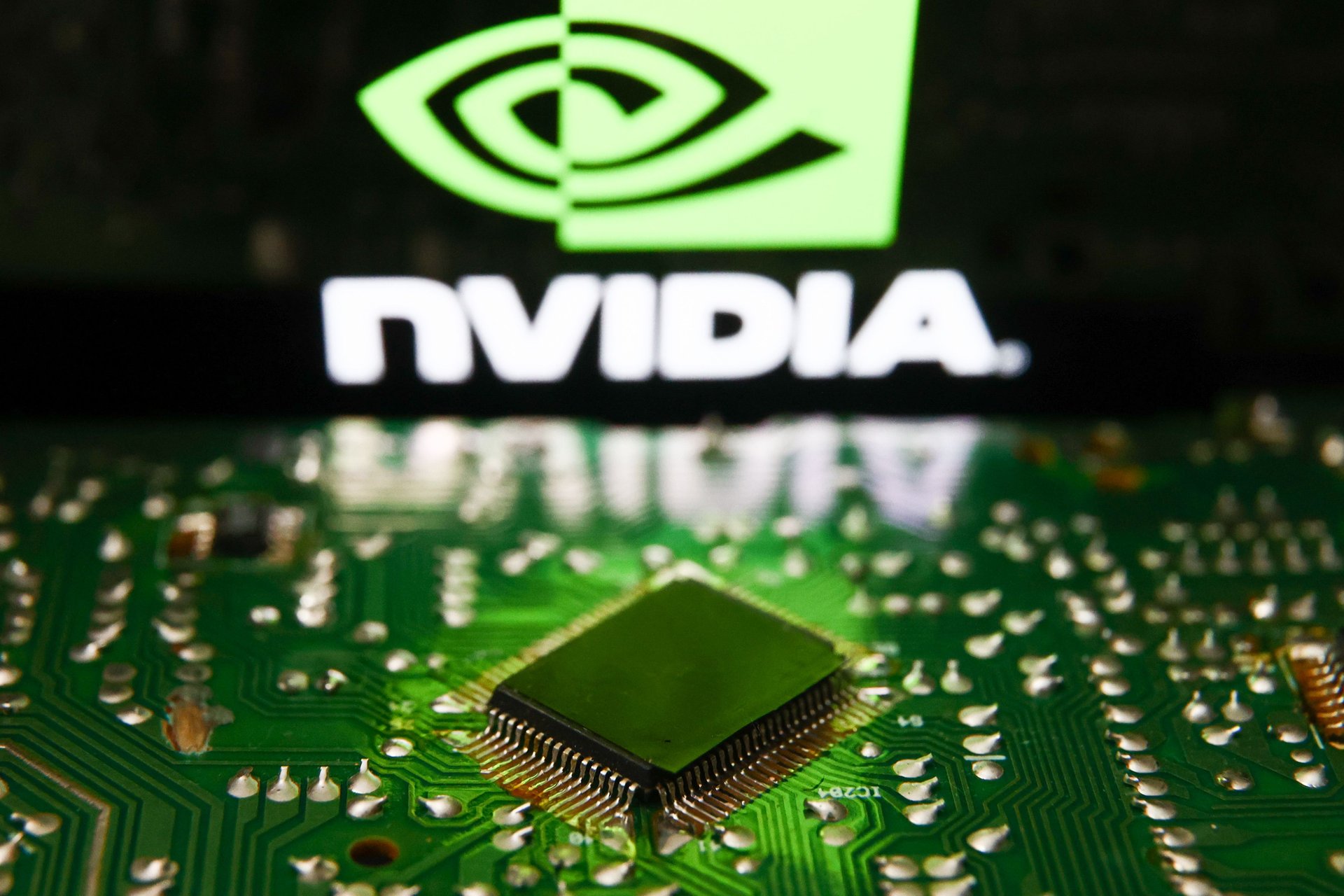Restricted Nvidia AI chips worth $1 billion were reportedly smuggled into China
Chinese distributors reportedly began selling Nvidia’s restricted B200 chip to data centers for Chinese AI groups in May

Jakub Porzycki/NurPhoto via Getty Images
At least $1 billion worth of Nvidia’s restricted AI chips were smuggled into China after the Trump administration further constricted chip exports, according to a report.
Suggested Reading
Chinese distributors began selling Nvidia’s restricted B200 chip to data centers for Chinese AI groups in May, per documents reviewed by the Financial Times. Based on document analysis and sources familiar with the deals, the outlet found that Nvidia's B200 chip is the most “sought-after” and “widely available” chip on China’s black market for American chips.
Related Content
There was “no evidence” that Nvidia had taken part in the sale of smuggled chips, FT noted.
“Trying to cobble together data centres from smuggled products is a losing proposition, both technically and economically,” Nvidia told the FT. “Data centres require service and support, which we provide only to authorised Nvidia products.”
A company based in Anhui was found to be one of the biggest sellers of Nvidia’s B200, reportedly including the restricted chips in “ready-built racks” — for $489,000 per rack — to be immediately used at data centers with nearly $400 million worth of racks were sold since mid-May by the business and its affiliates.
While those B200 racks were discovered to be originally from an American assembler, Supermicro, the FT also didn't find any evidence that the company was involved in any smuggling of its products in China.
Nvidia said in a blog post on July 14 that the Trump administration would allow the chip producer to continue selling its H20 AI chips to China after the Commerce Department had blocked sales in April.
The H20 was supposed to be Nvidia’s big workaround for restrictions on sales of powerful AI hardware to China. When the U.S.tightened export rules last year, Nvidia responded by launching this lower-spec version of its flagship GPU designed to fall just under those limits.
Shortly after the U.S. lifted restrictions on Nvidia’s H20, CEO Jensen Huang started pushing for permission to sell more advanced processors to the world's second-largest economy.
While Washington debates easing restrictions on chip exports to China, its black market is thriving, making policy discussion largely academic. Research from the Center for a New American Security (CNAS) estimates that between 10,000 and several hundred thousand banned Nvidia chips may have been smuggled to China in 2024 alone. Chinese firms are already planning to install more than 115,000 restricted Nvidia AI chips in some three dozen data centers across the country's western deserts — chips they cannot legally purchase without U.S. government licenses that haven't been granted.
The smuggling operation appears sophisticated and widespread. One smuggler reportedly handled an order worth $120 million for servers containing 2,400 banned Nvidia H100s destined for China, according to The Information. Chinese businessmen have openly bragged online about obtaining hundreds of restricted H200 GPUs, while authorities in Singapore arrested three people suspected of diverting AI servers worth $390 million.
Huang has consistently maintained there's "no evidence of any AI chip diversion," arguing that the massive servers are "nearly two tons" and easy to track. But Commerce Under Secretary Jeffrey Kessler directly contradicted those claims. "It's happening,” he told lawmakers earlier this year. “It's a fact."
The smuggling networks have become increasingly sophisticated. As of this month, more than 70 distributors were openly marketing restricted processors, with many offering delivery within weeks. The chips flow through a complex web of shell companies, third-party resellers, and intermediaries across Southeast Asia. Malaysia has emerged as a particular concern, with the country's imports of advanced GPUs surging over 3,400% in early 2025, prompting new permit requirements for AI chip exports. Malaysian authorities have said they "will not tolerate the misuse of Malaysia's jurisdiction for illicit trading activities."
Smugglers have used creative methods to move the hardware, including hiding chips in shipments labeled as tea or toys, and even packing them alongside live lobsters. Despite the logistical challenges, the evidence suggests the networks are moving substantial quantities of hardware across borders.
- Jackie Snow and Shannon Carroll contributed to this article.
